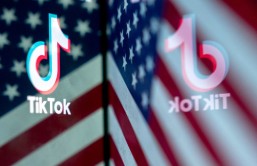Next year's Hoshi Prize in Japan will be accepting projects that are based on advanced computers and aliens.
The goal for the science fiction competition is to see humans compete against artificial intelligences and see who can write the better stories, according to The Guardian. Judges will not know who, or what, has written the story until the winner is decided.
The competition was set up last year and was named after the late Shinichi Hoshi, one of the most well-known science fiction writers in Japan, who died in 1997. His daughter, Marina Hoshi Whyte, said entries will not be accepted by humans and computers, but also by space aliens and animals that are capable of writing in Japanese.
"It's sort of a joke, but for real," she said. "I wanted the award/competition itself to be science fiction. After all, if it can't expand the imagination of the general public, what's the point of having a sci-fi competition?"
Hoshi's past accomplishments include winning a Science Fiction and Fantasy Writers of Japan lifetime achievement award, as well as leaving behind over 1,000 short stories after his death, The Guardian reported. His daughter said his stories often had one idea and a surprise ending, such as his "The Whimsical Robot" collection, which centers on a man who buys a robot to help him at home. This series gained so much popularity in Japan that it sold millions of copies.
Hoshi Whyte also hopes that a team of scientists led by Dr. Hitoshi Matsubara, a professor at Future University Hakodate in Hokkaido who has written hundreds of short stories, will enter next year's Hoshi Prize. She added that the professor's research also focuses on helping AIs produce better stories.
"Dr. Matsubara said from the very beginning that it would take about five years for his A.I. to write a decent story," Hoshi Whyte said. "The next deadline (autumn 2015) is still only three years from the conception of the project. So I know that next year's story would be very primitive and wouldn't even be close to winning. But that's OK. I think it's still good that the public follows the progress of the project this way, like watching a baby grow up."
A human by the name of Shinichi Endo won the first Hoshi prize. The story used to win the competition was written as a science article written by three advanced AIs in the year 2064.








